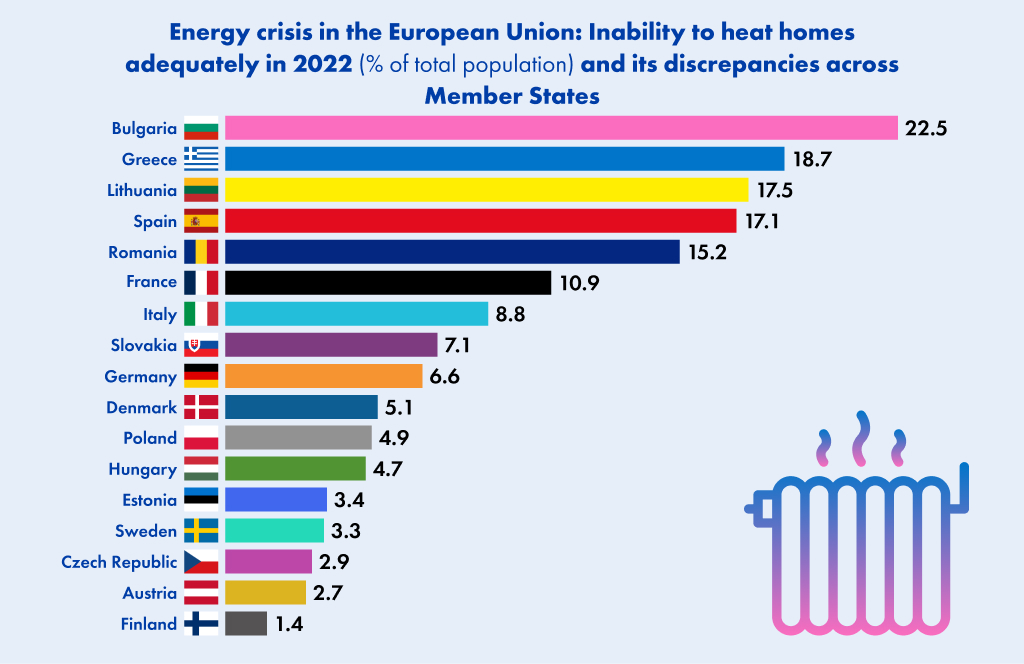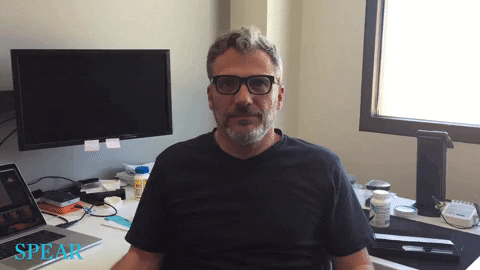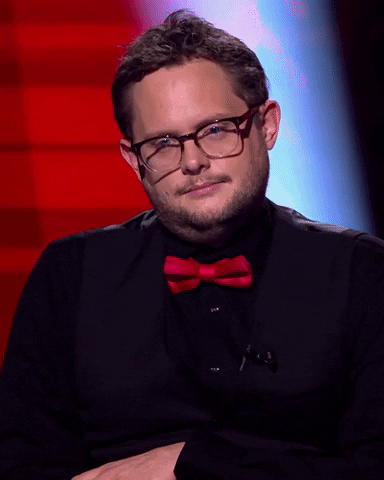Issue #138
Guten Morgen! As the tan starts to fade off and the Arbeit loads get back to pre-vacation levels, we welcome you to this week’s Krautshell edition with some solid intel, flavored with insights, and a dash of thought on topics that need to be touched upon. Our main articles look into Germany’s transition from nuclear to somewhat clear energy as to how the winds of the north satisfy the needs of the south, Ursula von der Leyen’s recent State of the Union Address as the President of the European Commission, highlighting her audacious emphasis on AI regulations, as well as her potential candidacy for a second term, and poor communication style from the progressive traffic light coalition causing trust issues with the public, leaving GER with less MONEY. Also, we have an overview of the energy crisis in EU member states. And last but not least, Anna’s got the scoop on “The Rise of Radicals.” You’ll definitely want to tune in because you know how things might turn out when the extremists start taking over. So, grab your favorite beverage, get comfy, and let’s get into it! Anna Szilvia WHAT TO WATCH THIS WEEK: Robbie! Energize! On April 15th, Germany switched off its last three remaining nuclear reactors, after yearlong debates, quarrels in the government, discontent in the opposition (which was in government, when an exit from nuclear energy was first adopted). An important issue, however, remains for Germany’s state and federal governments to solve: how to supply the South with wind energy from the North. Most of Germany’s renewable energy happens to be sourced from a readily available resource – wind. The only issue seems to be that the wind swept coastal region and the north happen to be, well, not necessarily hubs of industry and manufacturing. Southern Germany, the industrial heartland, is dependent on renewable energy from the North of Germany – effectively turning the state of Schleswig – Holstein into Germany’s Saudi Arabia… without a desert… and loads of sheep. (The author happens to hail from Schleswig-Holstein, also known as the most beautiful Bundesland in the world, according to a neutral source. Radio Schleswig-Holstein.) In an effort to not starve the south of renewable energy, and having effectively cut energy availability in the south, the previous government green lit an “electricity Autobahn” – SuedLink, which began its construction on September 11th. 2023. In true German fashion, the project is not only delayed and way over budget (Berlin Airport, anyone?), but also burdened by a heavy dose of NIMBYism, due to its above ground design. Nevertheless, Federal Minister for Economic Affairs and Climate Action, Robert Habeck, stated that “Suedlink will enable southern Germany to benefit from the large quantities of wind power generated in the north.” The transmission line is set to transport electricity from Schleswig-Holstein to Bavaria and Baden-Württemberg starting in 2028. A mere six years after the initially planned completion date of… last year. Suedlink is designed to transport electricity over a total distance of 700 kilometers to the south. The transmission line has a capacity of four gigawatts, equivalent to about ten percent of Germany’s electricity demand or the output of the three nuclear power plants that were shut down in April. For as long as the transmission line is not completed, Germany’s addiction to coal power and other fossil means of electricity production is set to continue. With the second most polluting electricity production sector in the European Union, one may wonder whether the government of “climate Chancellor” Olaf Scholz really is all that concerned about CO2 emissions and carbon neutral electricity production. INSIGHTS FROM PARLIAMENT: Digital first at von der Leyen’s last? Last Wednesday, Ursula von der Leyen possibly held her final State of the Union Adress as the President of the European Commission. After all, the next European election is already scheduled for June of next year, and it’s still not clear whether she intends to seek another term as President. For Germany, this could be both good and bad news. The good news is that von der Leyen would no longer be President of the European Commission, but the bad news would be that she might return to Germany. In her speech, the President emphasized Europe’s role as a leader in data protection and responsible use of digital technologies. Therefore, she described the AI Act as a global blueprint that should be implemented as fast as possible. Additionally, she proposed the creation of a global governance body for AI, similar to the World Climate Council. Furthermore, the Commission plans an initiative to facilitate European AI startups’ access to supercomputers and promote innovations in the field of AI. So, the EU’s ambitions in the AI sector can be summarized as follows: the EU wants to become a referee in a game where all the players are already much better than itself, and in order to even be on the playground, it wants to establish the rules. Regarding China, it seems that the President of the European Commission values fair international competition. She announced the initiation of an anti-subsidy investigation against Chinese electric vehicle manufacturers to ensure fairer conditions. Her goal is to minimize risks in dealing with China without decoupling from China. I hope that Beijing didn’t get it wrong. But now let’s turn to the truly important topics of the speech. The topics that were not even part of the speech. The European elections. The Brussels bubble has been anticipating von der Leyen’s decision regarding a potential second term, and it is now highly probable that she will indeed pursue it. This could contribute to maintaining consistency and stability within the EU, particularly in the execution of the Green Deal. Nevertheless, it may not align with the preferences of those desiring a more political approach to selecting top EU positions based on electoral outcomes. Alternatively, France’s President Macron would probably prefer Thierry Breton to take on the role – turning Europe even more French than it is now. Macroleon, anyone? No? Well, it was worth an attempt. THE BIG PICTURE: Out of the slumber, out of the Office? After 16 years of Angela Merkel’s leadership, a political slumber that lasted for a decade and a half, a new era dawned in Germany in 2021. Not only did a new chancellor come to power, but for the first time in German history, a government coalition consisting of three parties was formed. The SPD, Greens, and FDP embarked on this legislative period with great ambition, aiming to be a “progressive coalition.” However, this proved to be more challenging than they had hoped. The outbreak of Russia’s war against Ukraine quickly brought them back to reality, and the past few months, in particular, have been marked by bitter and publicly aired disputes. Simultaneously, economic sentiment darkened, and the first obituaries for the German economy began to appear. If there’s one thing the German population cannot tolerate, it’s conflict and uncertainty. Merkel understood this, as evidenced by her 16 years in power. She employed a calm, uneventful political style and benefited from a favorable economic environment. Simply perfect! However, upon closer inspection, the crumbling bridges, dysfunctional railway system, and lack of digitalization may have their disadvantages. Nevertheless, the population has only partially recognized this. In particular, the past few months have eroded the public’s trust. Only 12% of Germans believe that the coalition is keeping the majority of its promises from the coalition agreement, while 43% believe that hardly anything will be implemented. In reality, the coalition’s track record is not so bad. They have fulfilled 38% of their promises from the coalition agreement and a total of 174 promises, which is 20 promises more than the previous government achieved at this point. All of this took place against the backdrop of the waning COVID-19 crisis and the beginning of the Ukraine war. So, the performance is not bad, but the perception and communication are lacking. So, what’s the solution? Should everyone be put to sleep, lulling them into a deep slumber?. The government still has an ambitious agenda. Whether this means that they will continue to disturb the preferred beloved peace of the Germans remains to be seen. In the end, it’s all a matter of communication. Source: ec.europa.eu Here are three appointments for next week that you should have on your radar: PULL YOURSELF TOGETHER This week’s polls confirmed what already deeply concerned me a few weeks ago: The AfD, the German right-wing party, has become the second largest party, more or less doubling their results in the Federal elections two years ago. This did not happen, though, because they are doing such a great job. It happened, because the coalition are doing such a poor one, frustrating citizens and driving them the extremist party. Or, let me reformulate: The AfD it not gaining, because they are doing such a great job, but because the coalition sucks at communication, between its partners and with the public alike. While I am not exactly on board with many, many initiatives, and legislations, to put it mildly, one must admit: They kind of are doing their job. It’s half-time, and from all the measures the coalition partners agreed on in the coalition treaty, they already can check of 31 percent. 33 percent are in the making, and only 36 percent are still untouched. With two more years to go, this is not the worst result. But this is not what they are making news with. You mostly read about quarrels and fights. About badly made laws that need several rounds of fixing. About ego-trips and bad communication styles. And even though the controversial Gebäudeenergiegesetz (Buildings Energy Law) was adopted last week, other disagreements are still on the table – budgetary questions, debt, basic security payments for children, industry power pricing, you name it. The impression of the coalition is that of a bunch of bickering kids, acting rather on emotions, and ideology, and deals than trying to reach the best solution for the common good. By no means I want to praise the coalition’s policies. But for democracies sake, I hope they will learn how to behave and communicate with the public really soon. (*Most of respondents are stating that they are in favor of the AfD not because of their ideology, but because they see supporting the AfD as a means of protest.) Issue #138


FIRST, AN OUTLOOK FROM SZILVIA:
NOW, SOME SOLID INTEL:
TAKE A BREAK, GIVE YOUR EYES A REST.

LONG STORY SHORT:
OUTLOOK:
When?
What?
September 20th & 21th, 2023
Big-Data.AI Summit, Berlin
September 20th & 21th, 2023
Quantum Summit, Berlin
September 19th - 22nd, 2023
Tripartite event of the European Open Science Cloud Initiative (EOSC), Madrid
WHAT’S ON OUR MINDS:




